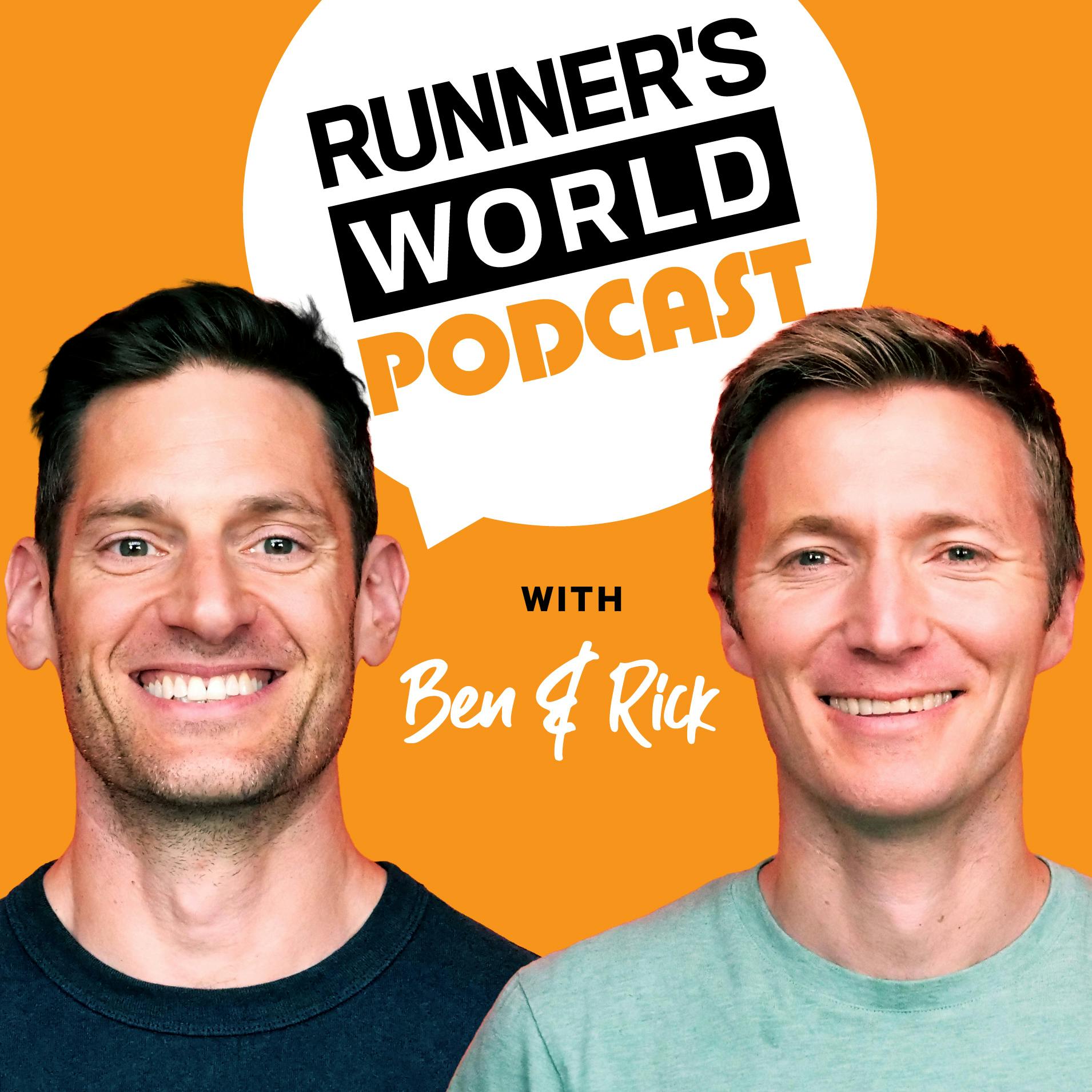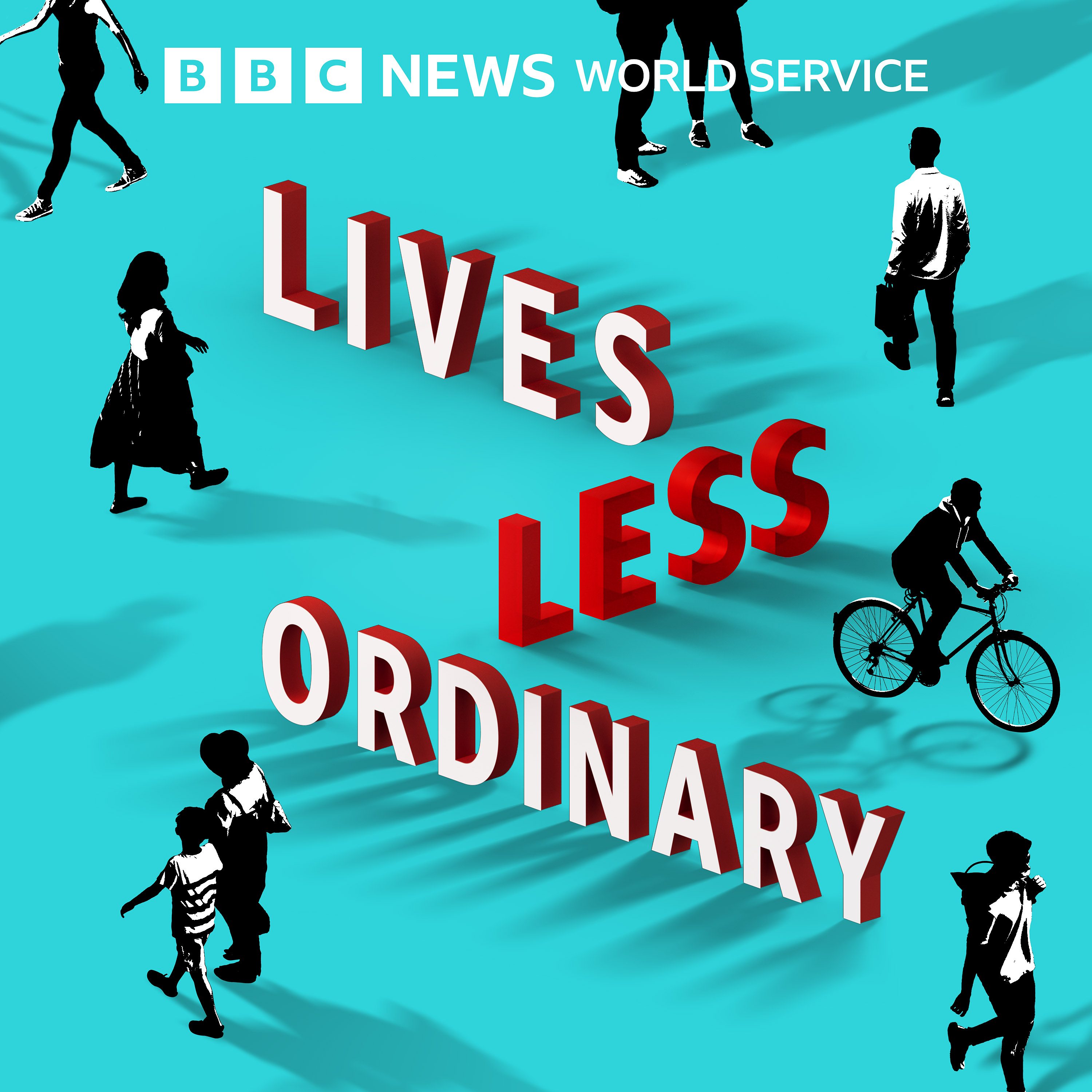
Brian's Run Pod
Welcome to Brian's Run Pod, the podcast where we lace up our running shoes and explore the exhilarating world of running. Whether you're a seasoned marathoner, a casual jogger, or just thinking about taking your first stride, this podcast is your ultimate companion on your running journey.
Join us as we dive deep into the sport of running, covering everything from training tips and race strategies to personal stories and inspiring interviews with runners from all walks of life. Whether you're looking to improve your race times, stay motivated, or simply enjoy the therapeutic rhythm of running, Brian's Run Pod has something for every runner.
Brian's Run Pod
Mastering Race Day Anxiety
Sports psychologist Michael Huber returns for part two of our conversation, diving into practical strategies to calm race day nerves and enhance performance through mental training. We explore how proper preparation creates confidence and discuss techniques to transform pre-race anxiety into positive excitement.
• Understanding why you're running helps reframe nervousness as excitement
• Training your mind alongside your body creates exponential performance benefits
• Preparation includes having mental responses ready for when discomfort intensifies
• Deep breathing techniques can physiologically reduce anxiety during races
• Giving yourself permission to adapt your race strategy reduces pressure
• Social media comparisons can be reframed as sources of confidence rather than inadequacy
• The way we think affects how we feel, which directly impacts performance
• Runners often overthink comparisons with others rather than focusing on their own race
• Mindfulness practices like yoga can help develop mental clarity and breathing control
• Creating positive mental associations can counteract mid-race anxiety
For more mental training resources, Michael recommends "The Brave Athlete" by Dr. Simon Marshall and Lesley Paterson, which offers practical exercises specifically designed for endurance athletes. Find Michael at MichaelVHuber.com for more resources, blogs, and podcasts.
Brian's Run Pod has become interactive with the audience. If you look at the top of the Episode description tap on "Send us a Text Message". You can tell me what you think of the episode or alternatively what you would like covered. If your lucky I might even read them out on the podcast.
Instagram
So you're thinking about running, but not sure how to take the first step. My name is Brian Patterson and I'm here to help. Welcome to Brian's RunPod. Welcome back to Brian's RunPod and I'm your host, brian Patterson, and wherever you are in the world, thank you for tuning in. Your support really keeps me motivated. This week we're diving into the second part of my fascinating conversation with sports psychologist Michael Huber. We kick things off by discussing strategies to calm race day nerves, insights I'm sure you'll find incredibly useful. If you haven't had a chance to listen to the first part yet, I highly recommend going back to catch up. There are plenty of tips there that can help enhance your race day preparation and training. So, without further ado, preparation and training.
Speaker 2:So, without further ado, let's jump right in. So, in terms of people who kind of have a little bit of anxiety when, let's say, they've signed up for a race, suddenly maybe it's their first, second or third race and then they maybe have a little bit of anxiety or nerves Is there anything that we can do, either a race day or even as part of our training, to help sort of counteract this?
Speaker 3:Yeah, I, there's a lot of things that we can do right. So we'll, we'll. We'll start with the training part of it and I'll actually speak from my my own experience. Yeah, when I ran the one marathon that I ran, I was under trained. Right, I was not proper, I was, I was training, but I was under trained in terms of the mileage. I wasn't like long enough, yeah, and so by mile 15 or 16 I was really starting to suffer and I resisted those longer runs in my training because I just didn't want to do it Right. So the confidence in our preparation is one way to alleviate that Right. So am I properly trained? Right, if I've done all the work, I can really emphasize and lean on that Right. So, if I don't want to be nervous, one way to alleviate that is to really properly train for the race. Now, obviously everybody's different and there's maybe no perfect strategy. There's all sorts of race plans that are out there, but if I've run 20 or 22 or 24 miles in my training leading up to a marathon, I can reasonably say I'm going to do okay, aside from any of the external factors that come Then while we're there, like whether it's pre-race or in the race, right, it's it's.
Speaker 3:You know how we interpret the nerves. What do they mean? Right, like, why am I running this race? You've heard me say that a couple times already. Why am I doing this? Right? And how can I interpret those nerves as positive? Like, I'm excited for this race, I've put in all this work, I'm getting the chance to go run a marathon to say I've done this.
Speaker 3:What am I nervous about? Right? Am I nervous about I'm not going to run fast enough? Maybe it's an outcome. Maybe am I nervous about the discomfort that's going to come with it. I think for a lot of people, am I going to embarrass myself? Right? Am I going to not finish? I told everybody I was going to run this marathon and you know, if I don't finish, I'm going to be so embarrassed, right? What are they going to think of me now? First of all, right, objectively 99.9% of the population they're not running marathon.
Speaker 3:So even if you go out there and you DNQ right, you don't finish, you're still that much further ahead. You've done all this work and you prepare yourself and you're willing to sacrifice, like, there's value in that. But even if I don't finish a race, I bonk and I'm done. Okay, right, so what? But I think, even then, right, like, if I, for me, I walked a big chunk of my race. So, like, if the goal is to just finish the race, then it doesn't matter how you finish. So you can alleviate that anxiety by saying, like, if I really hurt, if I'm really in pain, if I'm really uncomfortable, I can always walk it right. I don't have to finish in in pain. If I'm really uncomfortable, I can always walk it right. I don't have to finish in time, right. So I'm giving myself permission to explore other strategies.
Speaker 3:Now, some people might not accept that, right, they might think that that's the easy way out. Okay, well, what are we nervous about? Like, you know what I'm saying. Like you got to be ready for it. Like we talked about before, breathing is a great way to alleviate those, whether it's pre-race deep breathing to try to like, get your heart rate down, or even during the race, like in a 26 mile race or a 13 mile race or kilometers. You know I'm using American terminology. You know being able to access deep breathing in the race to sort of get your heart rate down Right. Able to access deep breathing in the race to sort of get your heart rate down right. You're like if you're wearing a monitor, you're wearing a watch and you see that your heart rate's, you know above where you'd like it to be because of the circumstances.
Speaker 3:There's a lot of people around nervous about the race. What have you? I went out too fast. I can use my deep breathing to regulate my heart rate in that moment right To try to bring down some of those nerves. So there's a lot of different things that we can do right, and so, whether it's our preparation, whether it's the way we think about the race and our purpose and why we're doing it, or it's our breathing, you know, functionally in the race, those are all things we can do to manage our nerves. But I think, underneath all of it, it's why? Why am I? Why am I nervous? What makes me nervous about this race? And trying to address it at the root, because if we can understand it too, we can also respond to it better and it is again.
Speaker 2:Is that something that you know, we can sort of write down as not just part of our training, but also, you know, either put on the fridge door, you know the race is coming up, and then you know as to, you know it's. It's. It's not just about having your training plan then, but it's about you know the, the why, why am I doing it?
Speaker 3:Yeah, that's exactly right. Put it on the fridge door, put it on the bathroom mirror, right, put it in places where you can see it as a reminder of like there's more to this than the performance. End of it. There's a athlete, there's a person underneath the athlete.
Speaker 3:That's also something that, you know, I like to talk about, right, we put so much, we tie so much of our identity up in being an athlete, even if we're recreational, that we sort of forget that we're human. Right, we're prone to bad days, we're prone to things that are out of our control. Right, and we may not perform our best, but all the stuff that we do, the sacrifices, the effort, everything that we put into it, like we're a person, it's okay to not be perfect, and why am I doing this? Because I want to test myself and my mettle as as a person, as a human being, not just I want to be an effective runner, right, so, absolutely like, and I think the more you do prompt yourself with those reminders in the environment, you know, and it could be over the course of 12 weeks of training, where it's, little by little, you're kind of dripping exposure, yeah, you're starting to build that subconscious awareness and conscious awareness of it, versus like, hey, tomorrow's race day. Now I'm gonna like really try to like pull everything together and remind myself of you know why I shouldn't be nervous tomorrow?
Speaker 3:Versus we're doing a little bit every single day on the mental side that goes with the training that we're doing. Right, and I haven't really hit on this, but you have and and I'll say it another way is, if you're doing those things to train your mind, along with the physical training you're doing over the course of a 12 or 16 month training block, it's going to be a lot easier to access it and and and believe in it when you get there, because you've done the preparation over that period of time and it's really, it's solidified. Versus okay, on race day I'm just going to try to like have the mentality of being confident and you know, whatever, I'm going to be a great runner on that day. So your, your, your subconscious is a lot less likely to believe it than if you're doing it all the time over the course of that training period, just like you are physically training and I think it's.
Speaker 2:The other thing is is that you're, even though you're not going through the training plan for a particular race, and either you're lying in bed or you're watching the tv in a way, mentally you're, you're training your mind, which is, would you not agree? Is it's? It's kind of like a 50 50 split in terms of you achieving the particular goal or completing the race or the run that you've set yourself, or the goal that you've set yourself. When you say 50-50 split, you mean between mental and the physical.
Speaker 3:Yeah.
Speaker 2:Or is it I?
Speaker 3:mean, I think, well, I think you know, research would sort of support the idea that, at the end of the day, the physical side is probably more prevalent, in the sense that, like you still have to go do it Right.
Speaker 1:Yeah, of course, yeah.
Speaker 3:Yeah, but at the same time, when someone's training their mind and they're doing the physical work, there's an exponential benefit to that, right? So, like I'm doing all the preparation but now visualizing myself on race day, I'm setting properly structured goals and I'm holding myself to count, I'm being compliant, I'm working on my self-talk strategies during my runs, where I have my mental responses planned for when I start to feel that pain tip over the edge right, when it goes from a five out of 10 to a seven or eight out of 10, I know what I'm going to do, right? So all those little things that I'm doing over the course of the training are going to exponentially improve my chances of having good experience on race day. Chances of having good experience on race day versus I'm only doing the physical training but I'm not really accounting for all this other, all these other things that I said could go wrong.
Speaker 3:Yes, they are relevant and we're not. We're ignoring them, we're only saying, if I do this training, I'm going to be good on race day. And that's not really true, right? If I, if I, if I'm intentional about my mental preparation along with my physical, I'm much more likely to have a good experience because I'm ready for it yeah, yeah, I've already exactly these things.
Speaker 2:Yeah, it's being prepared, isn't it correct? I've been really interested to know is that, over the years that you've been a sort of a sports psychologist, has I mean, I know you've probably dealt with professional athletes and I know you deal with younger athletes but has the type of clients you've had over the last 10, 15 years, has that changed or not? I mean, do you get, you know, amateurs or amateur runners or people who are in amateur teams coming to you?
Speaker 3:Yeah, I've, I've had some amateur athletes, whether they're runners or golfers, tennis players, right, recreational athletes but they're serious about what they do and a lot of times it is the, the, the people who have it's a very big part of their identity, right, like, I don't do this for a living, I don't get paid for it, but it's a huge part of who I am and I can't live with the fact that I'm not getting over the hump in this particular competition. I work really hard. I train four or five, six days a week. I'm doing everything. Yeah, I'm not getting paid for it, but it still means a lot to me.
Speaker 3:And then the thing that's holding me back is the mental side of it. Right, I'm putting so much stock into what I'm doing, I'm putting pressure on myself or I'm anxious, because it really matters to me and they're the ones that are going this matters so much that I really want your help with these tools so that I can have a better experience and want to keep going, because some people are like, they're older folks who are like, hey, I do this every day, I love it so much, but I'm actually getting to the point where I don't want to do this anymore because I can't be better. They can't accept that they're not improving and they're realizing that the only barrier is between between their ears I mean you mentioned their one game which is, for me, is a complete mental game, which is golf.
Speaker 2:I mean, I know this is a running podcast, but I know, even on a very I used to play golf with my dad and my late dad and and basically that was that. That for me is 90% mental and 10% technique for me. And you know, you, you know, you see it professionally, you know, well, we've just had the open last weekend and these guys must be so in their head, so tough.
Speaker 3:Yes, have to be. Yeah, because it's you versus you and there's all that downtime you're walking from shot to shot and you have to really be disciplined in your process, your routines. It's, but, but in a lot of ways, I mean, the biggest difference I would say between, like, say, running, and a runner and a golfer would be the discomfort, like the physical pain, which is a whole nother element, right, and I think in some ways, the physical pain of running makes it much harder in that there's this natural survival instinct where your brain's, like this hurts so much that I just want to shut down, like that's not going to happen in golf, but there's so much mental anguish and discomfort that I can see golfers being like I'm going to quit too, not because I'm in physical pain, but this is just way too hard. Yeah, so some of the same elements apply, and I think, for for runners, it's it's having that process as well. Right, and we talked about, maybe, some of these things.
Speaker 3:Right, every single step I take, every shot I take, like how am I interpreting it? What's my mantra, what's my plan? Right, like I'm going into this with intent, knowing why I'm doing it and knowing how I'm going to cope when things get hard, because they're going to get hard. And if you're not training that maybe I'm being redundant here If you're not training that it's going to be hard to respond in those moments because your brain's going to really set off the alarms. And now we've got to find the answer under duress, when it's really really hard.
Speaker 2:I something I've included and part of the outline is that something that is more in come into the landscape more than anything, and that it's social media. Do you think that that has a big part to play? Because I know it's something that I tell people. My daughter she's an artist and I say, well, it's not about comparing yourself to other people, it's about what you do. Do you see that something that has an influence on people who are doing their running there?
Speaker 3:Yeah, I mean social media. I think has an influence on all of us.
Speaker 2:Yeah.
Speaker 3:In terms of it's become part of our culture.
Speaker 2:Yeah.
Speaker 3:And, I think, the natural instinct, regardless if you're a runner or you're a soccer player or you're an artist, or you're a business owner the natural instinct cognitively is to compare yes, yes, it looks like they are having a really great experience. You're a business owner. The natural instinct cognitively is to compare.
Speaker 3:Yes, it looks like they are having a really great experience and they're doing something that not doing. So now I have to feel bad about myself. So when I talk to athletes about that, it's like, you know, having interpreting that in a constructive way. Right? Can I use that to compare? If I'm not going to stop looking at social media, right which a lot of people are not willing to do that If I'm not willing to stop looking at it, I need to be able to interpret that differently as well.
Speaker 3:Right, if that person can do it, so can I, right? So that's a source of confidence rather than a source of, you know, a source of feeling bad about myself. Right, I can look at it and go, hey, they did it, I can do it too, and that's something we talk about in sports psychology as being self, as self-efficacy. Right, like, I see other people's performances as a source of confidence because I can say, like, if they can do it, I can do it too. We can use it as a source of motivation hey, look at them, look what they're doing.
Speaker 3:Now I want to go run, I want to go train, I want what they have, I'm going to go do it versus feeling bad about myself and be like, well, why would I even try? So a lot of it is the interpretation. So if you're going to be looking at it, try to look at it through the lens of being constructive right, through the lens of being constructive, right, trying to have. And that perspective building is possible if we set the intention for ourselves, right. But you know, looking at social media and having us make us feel bad is not going to help our performance, right? We know in sports psychology that the way we think affects the way we feel.
Speaker 1:And the way we feel affects the way we behave, aka perform.
Speaker 3:I feel bad about myself, I'm not going to go have a good training run, I'm not going to go run a good race. Like that negative energy, that negative feeling, is going to actually get in the way of me performing the way I want to. So if I know that I'm not feeling good about myself, why am I going to subject myself to something that's going to make me feel worse? Or why am I going to subject myself to something that's going to make me feel worse? Or you know, I can make a choice and look at that and go. You know what, like I'm going to use that as fuel yeah, metaphorically as opposed to being the thing that sort of gets me down. And those are choices that we have to make and maybe even be prepared to make. When we go look at social media knowing like, hey, this thing's going to get me down, can I look at it through a different lens and be ready for it to use it constructively?
Speaker 2:It's prevalent regardless of sport and it's prevalent regardless of age group and it's not just about you, the performance, but also the comparison of how they look. So that can either have an effect on your diet, it could have an effect on self-confidence and so many other factors. But obviously, like you said, is to look through it through a different lens.
Speaker 3:Yeah, it's interesting. So I just had a conversation with a sports nutritionist and we were talking about this in a little bit different context, but you raise a really great point, right. Like, if I want to be a great performer, I got to fuel my body with proper nutrition. It doesn't necessarily matter how I look right. That person might be lean and whatever, and there's so many factors that influence that genetics and things we can't do anything about. If I want to perform my best, the aesthetics shouldn't matter as much as do I feel good.
Speaker 3:Right Is what I'm putting in my body or is my training helping me to feel good, Because if I feel good, I'm going to feel confident about myself and I'm going to run well, whether I look a certain way or I look another way, right, and so also being able to look at it through that lens of this is about how I feel right and how I want to perform is affected by how I feel, and so I'm not worried about this person looking a certain way. All I'm worried about is doing the things for myself that are going to help me feel good so I can perform my best. Again, easier said than done, but it's certainly through that lens of like, hey, I just want to feel good.
Speaker 2:Now we can start to make choices that help us feel good, Even, even and maybe that includes not looking at social media, you know uh, honestly, I could talk for you, talk to you for hours because um in it was just saying that when, how, how you've how that feeling good. It's like trying to capture that and see if you can put it into, like in a bottle sort of thing, and to try and get that feeling when you go out on that next run, that kind of thing well, that's actually an interesting point, right?
Speaker 3:so, like you said it, one way, bottling it up, yeah, yeah, being able to replicate the conditions that allow you to think and feel and perform a certain way is something I'm always talking, right? And so that's where kind of reflection and journaling comes in, right? If I had a really good training run and I on a particular day, and I know exactly what I did on that day, I got eight hours of sleep, I ate this certain thing, I, you know, I meditated and I, you know, whatever the conditions were, if I can replicate that, it doesn't guarantee that I'm going to have the same result on tomorrow's training run, but I'm setting myself up for success, knowing that that does make me feel right. And so that's where being intentional about our training mentally can affect us. Right, because I want to bottle that feeling. I want to feel good every time I run.
Speaker 3:How do I do that? Well, I need to collect a database of information to be able to pull from that and say you know what I did. That it made me feel bad. I did this, it made me feel good. I want to do more of the thing that makes me feel good and less of the thing that makes me feel bad. Right, and so now we're starting to collect that information and we are bottling it. It doesn't guarantee success, but it puts us much closer to it if we know what's going to make us feel good yeah, yeah, we're.
Speaker 2:We're nearly coming to the end, but, as I said, it's been. It's been such a fantastic. I'm having a such a fantastic chat with you, michael, and because you're just giving so much information, which I know would be really fantastic for our audience, I just want to go through some sort of a quick lightning round in terms of one, you know, sentence clips which will be able to help our, our audience.
Speaker 3:What one mental tip for a race morning could you give to someone who is yeah there's probably a lot that I could give, I think, for a race morning, I think, noticing, being mindful of where you're at, yeah, paying attention to what's going on, what am I thinking, how am I feeling, and just really kind of getting in touch with that before you race, because then that can also dictate what you need for the race. Maybe it's some deep breathing, because I'm noticing that I'm really nervous or I'm feeling really good, you know, and I just really want to focus on my positive intention, right, whatever that is, I would be be aware of what's going on and trying to really be present, because then that can factor into how you approach the starting line and also how you navigate the next, however many kilometers you're going to run over the course of that race but do you think it's a good idea for runners to also take in these sort of supplement, supplementary sort of sports like yoga or even Pilates, because it is very much concentrated on the breathing?
Speaker 3:Again, I think that there's a lot of benefit to doing that from a mindfulness perspective, from a physical mobility perspective. I think, again, you know, as a coach, I'm always very much an advocate for experimenting but then finding what works for you. If that's going to help you, then I would do it. If it doesn't help you, or you don't get a benefit out of it, try it, but if it doesn't work, don't do it. I think it depends for everyone.
Speaker 2:And what's one way to and I think you kind of touched on this earlier on to calm a mood-run anxiety?
Speaker 3:touched on this earlier. On to karma of mid-run anxiety. Yeah, I think I said this earlier using your breathing, really accessing the deep breathing, physiologically, you get the heart rate to slow down so that the mind can kind of clear and the nerves can clear. I think that's a a tried and true strategy. But I think the other thing is kind of going back to what we were just talking about, just a little different way to think about it is, when you're feeling that anxiety mid race, think of something that makes you feel good. It doesn't have to be related to running.
Speaker 3:Think about envision yourself crossing the finish line, think about your children, think about something positive that's going to give you some of that good feeling to counteract some of the nerves, right, I think we we sort of ignore that, right, but like you, can think about being on the beach. Yeah, that makes you feel good and it helps you relax. Then do it right. I don't think there's any formula. I think it's just that thing that's going to help you get to a different place mentally so you can get yourself out of the nerves which really want to ratchet themselves up in the middle of a race and take you down.
Speaker 2:Is there any one thing that runners overthink in your experience? Do they overthink?
Speaker 3:I think it's comparisons, my experience with runners and the more track runners than they are like endurance runners, but really worried about what's going on around. What are other people running, what are their seed times? You know, oh the, the pack is ahead of me, I'm behind, I need to run faster. Or I get behind and I throw in the towel metaphorically because I'm not keeping up with the pace versus hey, the race isn't over yet. I think that's what runners overthink. I think they overthink sort of the race setup right or in the course of a marathon, you might look over and see some 75-year-old grandmother passing you.
Speaker 3:Don't worry about that. It has nothing to do with you, but it can make you feel bad if you focus on it. Hey, let them go. I'm running my race. Yeah.
Speaker 2:Yeah, just one last thing Is there any particular resources, apart from your resources and your website, that maybe runners can go to, which can give them a little bit more of an insight into sports psychology?
Speaker 3:Okay, so this is actually a book that I was I first read, was exposed to in graduate school. Yeah, that I was I first read, was exposed to in graduate school yeah, and it's one that I reference now, and it was written by a now late sports psychologist by the name of dr simon marshall, who's british yeah and his partner, leslie patterson, who's a triathlete okay, the brave athlete and it's very much runner focused because leslie is a triathlete.
Speaker 3:I don't know them but yeah, I know of them and you know, and there's a lot of like practical exercises in that book. So, like, if I'm a runner who wants to work on the mental stuff, there's like exercises in there that are very self-explanatory and practical that I could use in preparation for training. Whether it's my identity, it's my anxiety, it's whatever, right Like that's a really great resource because the way it's set up is really hands-on and it's really geared toward people who aren't necessarily elite athletes. It's geared towards, like, just the everyday athlete. So I would check that out. I think it's a great book and I, like I said, I still reference it in my work day athlete. So I would check that out. I think it's a great book and I, like I said, I still reference it in my work.
Speaker 2:Brilliant. Thank you very much. And before we finish, I where can we find Michael Give?
Speaker 3:us the best. The best place to find me is on my website. It's Michael V Huber H U B E R dot com, and there you can find podcasts, blogs, all sorts of resources that are free, that you can learn more about me and the work that I do, and you can reach out and set up time to talk if you're interested.
Speaker 2:Yeah, oh, that's fantastic and I have listened to. I remember listening to one of your podcasts where you talked about working with younger athletes and that approach, because I know it's something you've experienced in your own family, isn't that? Is that right?
Speaker 3:is that, yeah, my, my work as a sport, in sports psychology, is very much influenced by my own experience as as a young athlete, and but I think the thing about sports psychology that is universal. Regardless of your sport or your gender or your age, we all have the same operating system. Our brain is the same.
Speaker 2:Yeah.
Speaker 3:We're wired for negativity, we're wired to detect threat and we're wired for survival and learning how to reprogram. That, regardless of whether you're 10 or 15 or 55, generally is the same thing, other than maybe developmental and different ways to communicate brilliant.
Speaker 2:Thank you very much. Yeah, as I said, if you like to stick around at the end of the podcast, we'll say goodbye now, but I just wanted to say that normally I talk to coaches and athletes, but talking about the mental game in terms of running, you have been a fantastic resource and I hope the audience has got something out of it. I certainly have. So, yeah, I hope you've enjoyed it.
Speaker 3:I have, Brian. Thank you so much for having me. I love having these conversations. Thanks very much. Bye-bye.
Podcasts we love
Check out these other fine podcasts recommended by us, not an algorithm.

Life Changing
BBC Radio 4
Tech Life
BBC World Service
Runner's World Podcast
Runner's World UK
Buzzcast
Buzzsprout
Newscast
BBC News
Understand
BBC Radio 4
Cyber Hack
BBC World Service
Ghost Story
Wondery | Pineapple Street StudiosDiz Runs Radio: Running, Life, & Everything In Between
Join Denny Krahe, AKA Diz, as he talks with a variety of runners about running, life, and everything in between.
Uncharted with Hannah Fry
BBC Radio 4
The Global Story
BBC World Service
The Coming Storm
BBC Radio 4
Lives Less Ordinary
BBC World Service
Do Epic Shit Today Podcast
Hannah Mulhern
The Rest Is History
Goalhanger
